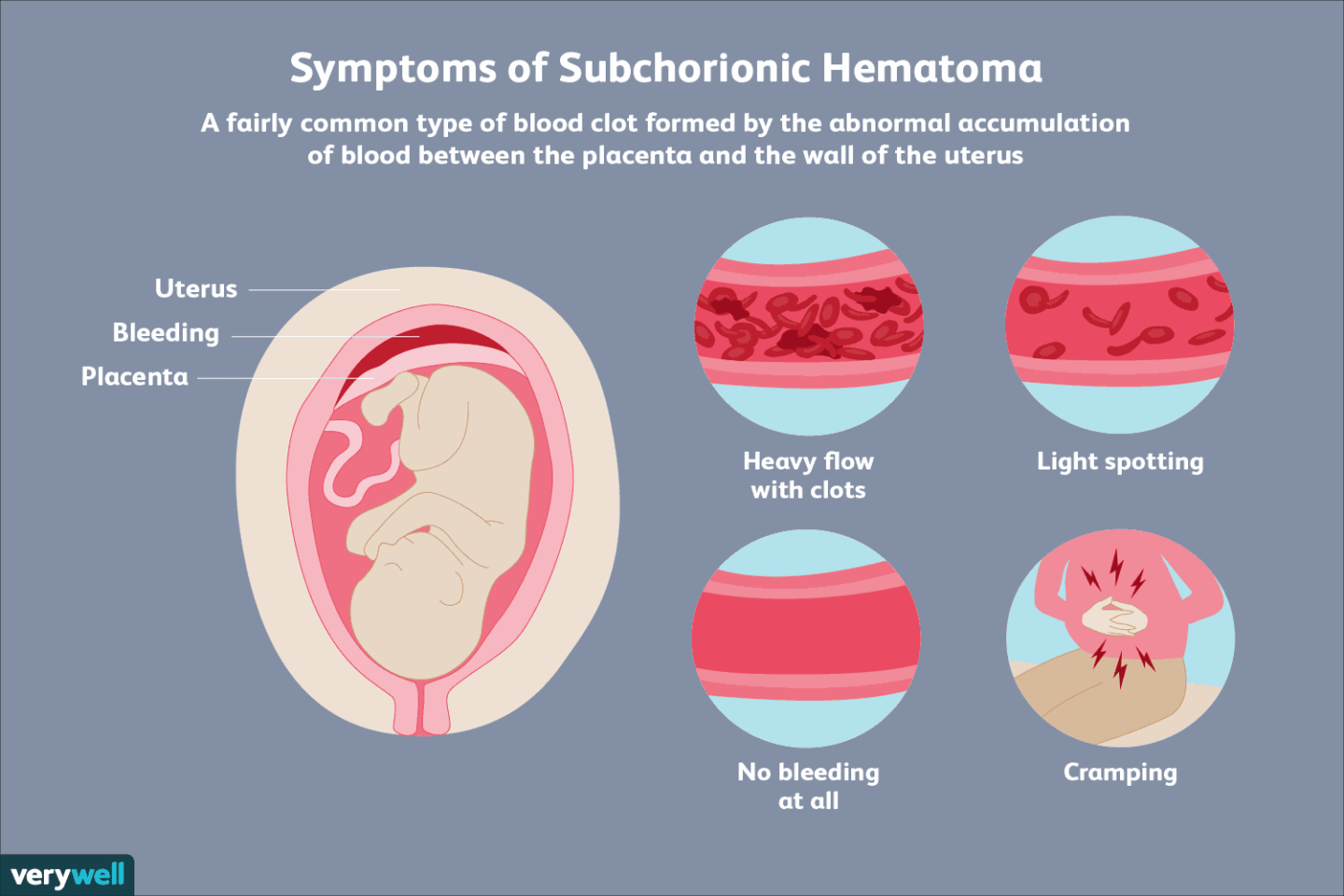I know I say this often, but recently my TikTok and Instagram DMs have been full of questions concerning subchorionic hematomas / hemorrhages. As OBGYNs we actually see this condition often, but I’ll be the first to admit that I can do a better job of explaining this in detail. So that’s my goal today, explain to you why this happens and what it can mean for your pregnancy.
Sé que digo esto a mucho, pero recientemente mis DM de TikTok e Instagram han estado LLENOS de preguntas sobre hematomas / hemorragias subcoriónicas. Como obstetras, en realidad vemos esta condición a menudo, pero seré la primera en admitir que puedo hacer un mejor trabajo al explicar esto en detalle. Así que ese es mi objetivo hoy, explicarte por qué sucede esto y qué puede significar para tu embarazo.

+the what
Subchorionic hematomas (which are the same thing as subchorionic hemorrhages) is bleeding that occurs with detachment of the chorion (this is the fetal side of the placenta) from the wall of the uterus. It can lead to the accumulation of blood between the uterine lining and the chorion or under the placenta itself– which we are able to identify on ultrasound.
+the symptoms
It is typically the most common cause for first trimester bleeding. This can cause light to heavy spotting or bleeding, although some women have NO symptoms. Other women may have cramping as well.
+the association with miscarriage
Subchorionic hemorrhages/hematomas are associated with increased risk of early pregnancy loss. Especially when the amount of hemorrhage (area identified on ultrasound) is 25% or more. It has also been found that the location of the hematoma impacts outcome, with worse outcomes reported if the hematoma is behind the placenta versus marginal (on the sides) hematomas.
+the prognosis
Most subchorionic hematomas resolve on their own in a couple weeks and women go on to deliver a healthy, term infant. For others the hematomas may continue to grow (although this is less likely).
+the details
Just because you had bleeding in the first trimester does not mean that you have a subchorionic hematoma. It also does not mean that you will have a miscarriage. Plenty of women have them and go on to deliver healthy, term babies. There is no treatment for subchorionic hematomas, but listen to what your provider says/advises for you–as this will vary woman to woman. If you don’t understand what or why your provider recommended something….ASK THEM! It’s important that you understand exactly what’s happening. Remember that this is not something that YOU did, you did not cause this to happen. Stay positive and hopeful that this will resolve on its own time.
+ el por que
Los hematomas subcoriónicos (que son lo mismo que las hemorragias subcoriónicas) son hemorragias que ocurren con el desprendimiento del corion (este es el lado fetal de la placenta) de la pared del útero. Puede provocar la acumulación de sangre entre el uterino y el corion o debajo de la placenta misma. Esto lo podemos identificar durante un sonograma.
+ los síntomas
Por lo general, es la causa más común de sangrado durante el primer trimestre. Esto puede causar sangrado o manchado leve o abundante, aunque algunas mujeres NO presentan síntomas. Otras mujeres también pueden tener calambres/cólicos.
+ la asociación con el aborto espontáneo
Las hemorragias / hematomas subcoriónicos se asocian con un mayor riesgo de pérdida temprana del embarazo. Especialmente cuando la cantidad de hemorragia (área identificada en un sonograma) es de 25% o más. También se ha encontrado que la ubicación del hematoma afecta el resultado, con peores resultados si el hematoma está detrás de la placenta en comparación con los hematomas marginales.
+ el pronóstico
La mayoría de los hematomas subcoriónicos se resuelven por sí solos en un par de semanas y usualmente las mujeres dan a luz a un bebé a término sano sin problemas. Para otros, los hematomas pueden seguir creciendo (aunque esto es menos probable).
+ los detalles
El hecho de que tienes sangrado en el primer trimestre no significa que tengas un hematoma subcoriónico. Tampoco significa que tendras un aborto espontáneo. Muchas mujeres los tienen y continúan su embarazo sin problemas. No existe tratamiento para los hematomas subcoriónicos, pero escucha lo que tu proveedor te diga o aconseje, ya que esto variará de una mujer a otra. Si no entiendes qué o por qué su proveedor te recomendó algo … ¡PREGÚNTELE! Es importante que comprendas exactamente lo que está sucediendo. Recuerde que esto no es algo que TU hiciste, tu no causaste que esto sucediera. Mantente positiva y ten la esperanza de que esto se resolverá a su debido tiempo.
WHAT ARE YOUR THOUGHTS? // QUE PIENSAS?

